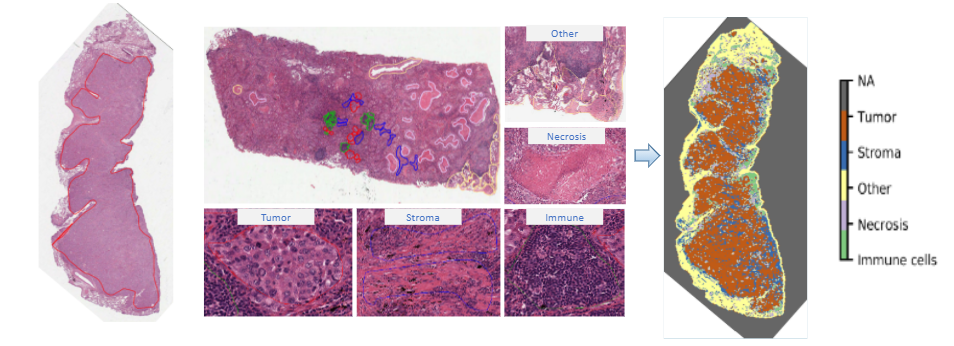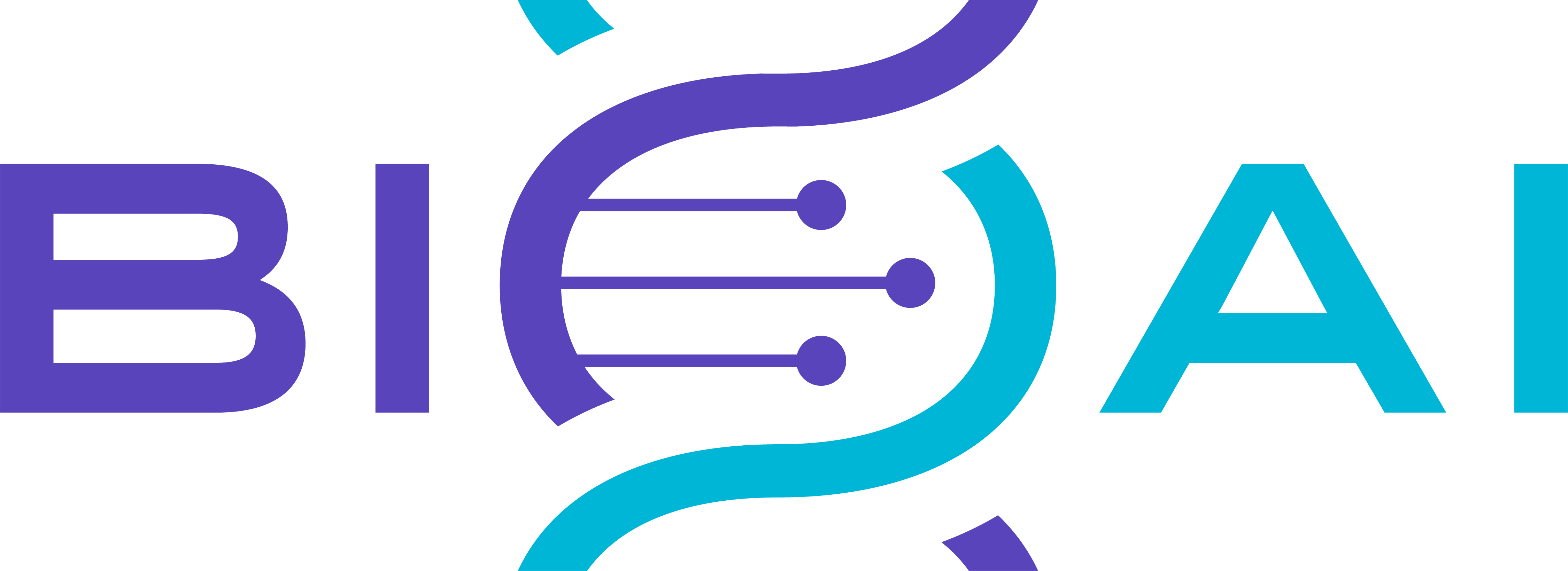Multi Omic
Bio-AI developed an automated pathology machine learning algorithm for detecting Non small cell lung cancer

Predict TMB Status From H&E-Stained Tissue Slides for NSCLC Adenocarcinoma

We integrate complex multi-omic data from clinical trials
We integrate complex multi-omic data from clinical trials and translational studies using our Bio AI Platform. We use AI to determine which predictors can improve patient selection criteria & increase success rates for clinical programs.
We have the capability to develop machine learning models on multi-omic data that can help predict patient response to therapy & drug resistance.
Differentiators
Bio-AI’s novel AI platform and capabilities are well aligned with Biopharma Translational Medicine programs, clinical trial assays & companion diagnostic programs
Bio-AI offers “Bio DL Visualizer” a unique quality control tool that enables Pathologists to make rapid QC of how AI black box algorithms are performing
We develop solutions under design control which is required for building robust predictive models for clinical trials and companion diagnostics. We have since developed first prototype applications including Predict Tumor Mutational Burden status on HE stained digital Pathology slides. We also developed Predict patient response to therapy in Gastric Cancer using HE & IHC stained digital pathology slides.
Bio-AI’s ML models can be expanded into new Tumor and disease indications to profile novel biomarkers that play a key role in predicting patient response to therapy, drug resistance and mechanism of action for drug therapies.
We develop machine learning models on multi-omic data from clinical trials and translational research programs.
Our team of experts, advisory board members and partners have a proven track record in building successful life sciences and medical diagnostics technology businesses. We focus on building strategic partnerships with our Biopharma clients through solving major challenges in clinical biomarker research and development.
Differentiators
We develop solutions under design control which is required for building robust predictive models for clinical trials and companion diagnostics. We have since developed first prototype applications including Predict Tumor Mutational Burden status on HE stained digital Pathology slides. We also developed Predict patient response to therapy in Gastric Cancer using HE & IHC stained digital pathology slides.
Bio-AI’s ML models can be expanded into new Tumor and disease indications to profile novel biomarkers that play a key role in predicting patient response to therapy, drug resistance and mechanism of action for drug therapies.
We develop machine learning models on multi-omic data from clinical trials and translational research programs.
Our team of experts, advisory board members and partners have a proven track record in building successful life sciences and medical diagnostics technology businesses. We focus on building strategic partnerships with our Biopharma clients through solving major challenges in clinical biomarker research and development.
Differentiators
Bio-AI’s novel AI platform and capabilities are well aligned with Biopharma Translational Medicine programs, clinical trial assays & companion diagnostic programs
Bio-AI offers “Bio DL Visualizer” a unique quality control tool that enables Pathologists to make rapid QC of how AI black box algorithms are performing
We have a design and development strategy for our robust prototype TMB module to further enable clinical study and diagnostic applications.
Bio-AI’s ML models can be expanded into additional indications and biomarkers that can help predict patient response to therapy, drug resistance & MOA
We have the capability to develop machine learning models on multi-omic data that can help predict patient response to therapy & drug resistance
Partners, advisors and experts have a proven track record in developing commercial, partnership and execution strategies while solving major challenges and advancing Biopharma R&D
